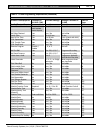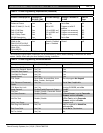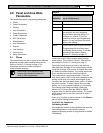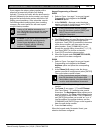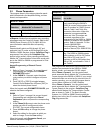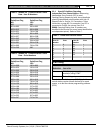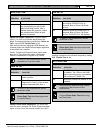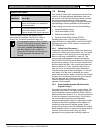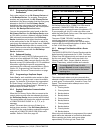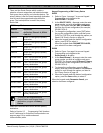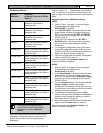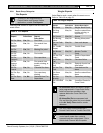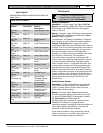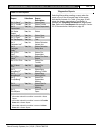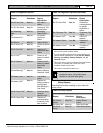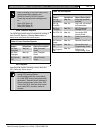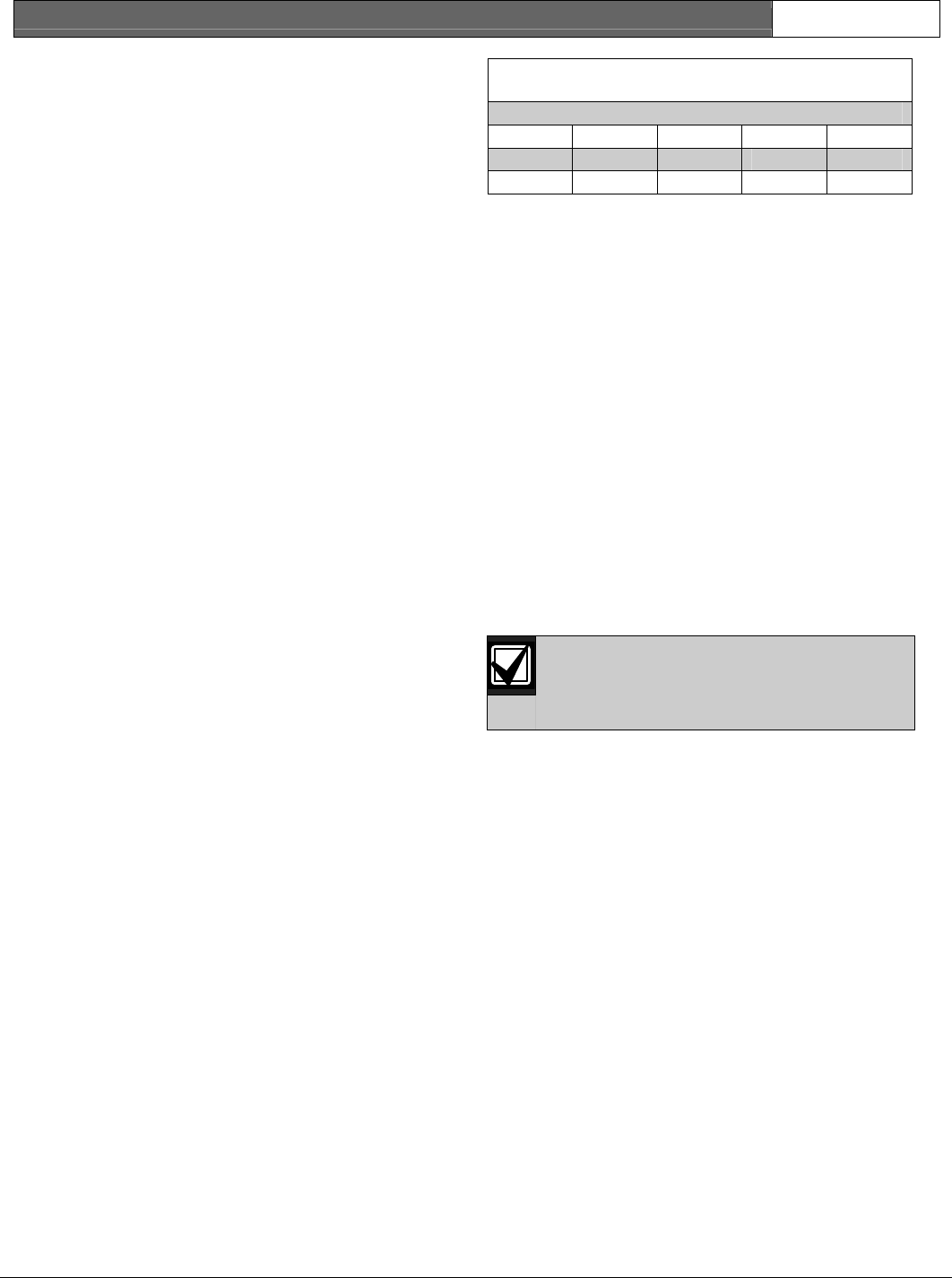
D9412GV3/D7412GV3 | Program Entry Guide | 2.0 Panel and Area Wide Parameters EN | 18
Bosch Security Systems, Inc. | 10/11 | F01U170807-02
2.3.3 Programming Primary and Backup
Destinations
Each route number has an R# Primary Device and
an R# Backup Device. For example, if two phone
numbers are programmed, the R# Primary Device
destination is the phone number that the route group
attempts to dial first. If the R# Primary Device
destination does not connect to the central station
receiver after two dialing attempts, the control panel
dials the R# Backup Device destination.
You can also program the control panel so that the
R# Primary Device or the R# Backup Device uses
an SDI device, such as a Network Interface Module.
With enhanced communications, the R# Primary
Device destination can be either the phone number
or the path number for the SDI device, to which the
route group first attempts to send the event. If the R#
Primary Device destination fails to connect to the
central station receiver after two attempts, the control
panel attempts to connect with the R# Backup
Device destination.
2.3.4 Enhanced Routing
The D9412GV3 and D7412GV3 allow events to be
sent to up to four additional SDI Paths. The network
interface modules (NIMs) connect directly to the SDI
Bus and occupy SDI Address 88 or 92. For additional
information regarding the specific programming
requirements for enhanced communications, refer to
Section 5.5 Programming Path Numbers and IP
Addresses for Enhanced Communications on page
131.
2.3.5 Programming a Duplicate Report
Select Yes for each available route number to allow
an event within a group to send a report to multiple
groups. For instance, if fire alarms are programmed
for Route Group 1 and Route Group 2, a fire alarm
sends a report first to Route Group 1, followed by a
duplicate report to Route Group 2.
2.3.6 Routing Destination Communication
Failures
When the R# Primary Device fails to connect to the
central station receiver after two attempts by phone,
the R# Backup Device phone number will be dialed.
The central station will receive the original event with
a COMM TROUBLE PHONE # = (1, 2, 3, or 4)
message
added. This event does not occur if there is no
backup phone number. If the R# Primary Device is
an SDI Path, the central station receives the original
event with a COMM TROUBLE RG8 SDI## event
modifier. Refer to Table 8 on page 18.
Table 8: SDI Path Number by Device
Path 1 2 3 4
SDI 88 88 89 90 91
SDI 92 92 93 94 95
When all attempts to both the R# Primary Device and
R# Backup Device fail, a COMM FAIL RG# event is
generated. COMM RESTORE RG# events are
generated when a successful report (via phone or IP)
or a successful poll (via IP) is sent over either route
within the failed Route Group, even if the report is sent
using a different Route Group.
The same COMM TROUBLE conditions occur if the
control panel does not receive a positive
acknowledgement to a poll from the central station
receiver after the configured number of retries. Refer
to Path # Poll Rate on page 132.
2.3.7 Message Prioritization within a Route
Number
The D9412GV3/D7412GV3 Control Panels meet the
digital reporting requirements for UL 864. Fire Alarm
Events have the highest priority and reports are sent
first for each group. Other events are sent in the
following order: Panic, Duress, Medical, Intrusion
Alarm, Supervisory, and all troubles and restorals.
To comply with NFPA and UL 864 ,
program Route 1 to send a report of only
Fire Alarm Events to ensure the fastest
reporting time.
2.3.8 Communication Attempts
The control panel makes up to ten communication
attempts using the primary and backup devices within
a route group. If unsuccessful, it sends a Comm Fail
Report. The communication attempts occur in the
following sequence:
1. Primary device
2. Primary device
3. Backup device
4. Backup device
5. Primary device
6. Backup device
7. Primary device
8. Backup device
9. Primary device
10. Backup device
When only one destination is programmed, the control
panel makes ten attempts to contact that destination.
When reporting via phone, each group takes
approximately 10 min to go into Comm Fail.



